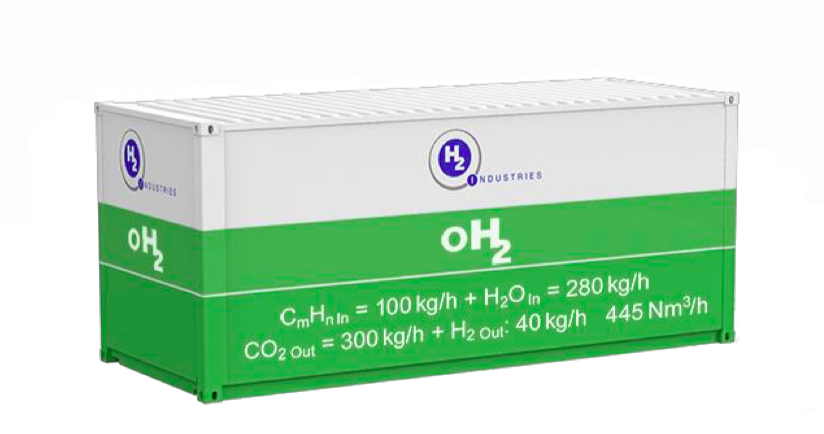New York-based H2-Industries has announced a plan to produce 300,000 tons of hydrogen per year in Egypt, out of up to 4 million tons of organic waste and non-recyclable plastic.
The company said its Suez Canal Project is the first of its kind in the world. It explained that hydrogen production at the planned facility could achieve a levelized cost of hydrogen (LCOH) that is almost half of other existing green hydrogen production technologies, and also lower than that of gray hydrogen.
“We are currently in discussion for similar projects in 30 countries from South America, Europe, the Middle East to all areas in Africa,” H2 Industries Executive Chairman Michael Stusch told pv magazine, noting that preliminary approvals for the project in Egypt have already been secured.
H2-Industries uses a liquid organic hydrogen carrier (LOHC) technology, which it considers to be the cheapest, safest, and most reliable transportation method. Its system is based on integrated thermolysis plant units based on pre-assembled scalable modules in standard container frames, which are designed to produce hydrogen from non-recyclable plastic waste such as hydrocarbons like polyethylene, biogenic residues from agriculture, forestry, food waste, and sewage sludge.
“Thermolysis is not waste combustion, but rather a high-temperature conversion process without oxygen or air to produce hydrogen,” Stusch explained. “The thermolysis units decompose waste at temperatures of around 900 C and close to ambient pressure in the presence of steam reforming. The integrated process splits and regroups the feedstock molecules into a hydrogen-rich gas mixture and, finally, the hydrogen is purified from this mixture.”
Stusch claimed that waste-to-hydrogen is a game-changer. “A change in paradigms takes a little longer, but we are convinced it will have the bigger impact,” he said.
The technology will jump-start when the first production plants show that hydrogen from organic waste and non-recyclable plastic will be cheaper than green hydrogen, he said, noting that this may also require a supportive regulatory framework. In addition, he noted that Europe's waste sectors are over-regulated, which poses a range of challenges.
“Nevertheless, we are in touch with potential partners in various European regions. Countries with underdeveloped waste sectors often are very open to our technology,” said Stusch.
In late April, H2 Industries unveiled plans to develop a $1.4 billion waste-to-hydrogen plant in conjunction with PV solar power plants and baseload capacity in Oman.
Core criticism
Not everybody is in favor of using waste-to-hydrogen technology. Canadian expert Martin said that municipal solid waste (MSW) contains some energy but that any fuel that you make out of it has to be considered fossil fuel.
“Once you take into account the energy needed to dry it, the net energy in excess of the energy required for drying, is of fossil origin,” he told pv magazine, adding that it is better to bury non-recyclable plastics. “They cease to degrade. They do not release their fossil CO2 content for thousands of years.”
According to Martin, there is a growing interest in technology, especially in countries running out of landfill space. “They should therefore focus on better waste segregation, waste reduction, and recycling. Switching from landfilling to air-filling is not a good tradeoff.”
He also argued that wet organic content should be removed at the source and fed to anaerobic digesters to make biogas. “It needs not to be converted to hydrogen, wasting at least 30% of its energy content in the process.”
This content is protected by copyright and may not be reused. If you want to cooperate with us and would like to reuse some of our content, please contact: editors@pv-magazine.com.



2 comments
By submitting this form you agree to pv magazine using your data for the purposes of publishing your comment.
Your personal data will only be disclosed or otherwise transmitted to third parties for the purposes of spam filtering or if this is necessary for technical maintenance of the website. Any other transfer to third parties will not take place unless this is justified on the basis of applicable data protection regulations or if pv magazine is legally obliged to do so.
You may revoke this consent at any time with effect for the future, in which case your personal data will be deleted immediately. Otherwise, your data will be deleted if pv magazine has processed your request or the purpose of data storage is fulfilled.
Further information on data privacy can be found in our Data Protection Policy.